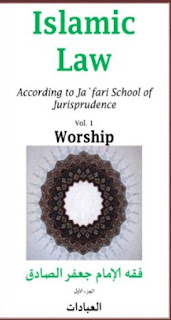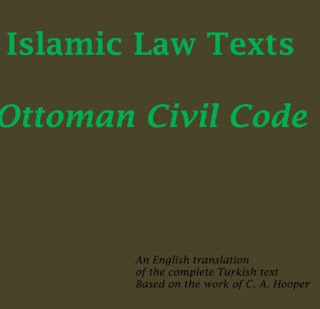Seclusion
According to the Sháfi`í school and the majority of Imámi jurists, the mere enjoyment of privacy or retirement by the couple has no effect on Dowry nor any other consequence. Only the consummation of marriage is of consequence in this regard.
The Hanafi and the \anbalí schools hold: “Legally Effective Seclusion” confirms dowry, establishes relatedness, and makes mandatory observance of waiting period in case of divorce, even though such seclusion does not result in consummation.
The \anbalís go beyond \anafis to inasmuch as to concider looking at her with certain desire to touch her or kiss her to be consummation and therefore sufficient for confirming Dowry. What is meant by Legally Effective Seclusion is of the couple’s being together in a place where they are secure from observation by others and where there is no impediment to intercourse.
The Málikís state: If the period of seclusion is prolonged, Dowry is established even without consummation. Some of them have fixed the period of Prolonged Seclusion at one full year (al-'ahwál ash-shakhsiyyah of Abú Zuhrah; Rahmat al-'ummah of al-Dimashqí).
Half the Dowry
There is consensus among the schools that if Dowry is specified at the time of the contract and then the husband pronounces divorce with out consummation, or seclusion—for those who consider the latter to be consequential—half the dowry shall be lost. But if the contract is entered without specifying dowry, she shall get nothing except the gift as mentioned earlier, in accordance with the following verse:
There is no blame on you if you divorce women when you have not touched them or appointed for them a portion; yet make provision for them, the wealthy man according to his means and the needy man according to his means, a provision according to honorable usage; (this is) a duty on the good-doers. And if you divorce them before you have touched them and you have appointed for them a portion, then (pay them) half of what you have appointed.... [2: 236-37]
Therefore, if the husband, not having paid anything to the wife whose Dowry has been specified, divorces her before consummating the marriage, he shall pay her half the Dowry. But if he has paid the entire dowry, he can ask for half of it back if it still exists, and the equivalent or value of it --in both cases as a substitute-- if it has perished.
If the husband and wife do not specify dowry in the contract but later agree upon it and then the husband divorces her before consummation, in this case, shall she be entitled to receive half of the Dowry agreed upon as if the Dowry had been specified in the contract, or shall she get nothing except the mut'ah, as if they had not agreed upon Dowry later?
The Sháfi`í, the Imámi10 and the Maliki schools are of the opinion that she is entitled to half the Dowry agreed upon, and according to the \anbalí book al-Mughní (vol. 6, chapter on marriage), she is entitled to half the dowry agreed after the contract, but not gift.
This marks the end of our discussion related to the right to full Dowry and the right to half Dowry. Instances of annulment of the right to full Dowry can be found in our above discussion on defects and fair dowry.
Side Issue
Abnormal Loss of Virginity
If the husband (by his finger or something else) causes the wife's loss of virginity, will it be considered consummation for the sake of confirming dowry?
There is no doubt that such an act followed by intercourse has all the legal consequences such as Dowry, 'iddah, establishment of parent hood and so on.
But the question is, if he, without intercourse, divorces her after causing her loss of virginity in this manner, does it confirm only half the stated dowry because the marriage has not been consummated, or will the full Dowry be payable through his action that caused the loss of virginity?
I Had asked Ayatullah al-Sayyid Abu al-Qásim al-Khú'i this question. This was his reply:
The husband is liable to pay the full dowry because of the loss of virginity, on the basis of the tradition narrated by `Ali Ibn Ri'ab in which the Imám (A) has stated: If they (wives) are as they were when they joined the husband, then she will get half the stated dowry. That which is understood from this conditional clause is that after divorce only half the dowry is to be paid if the wife's condition at the time of divorce is the same as it was when she joined him. Therefore, according to the principle of acentrarin argument (Mafhúm al-Mukhálafah), it indicates that the wife, if she is not what she was, the husband is liable to pay the entire Dowry, and it shall not be reduced to half irrespective of whether the change and loss of virginity occurs as a result of intercourse or some other
factor.11
Disagreement between the Spouses
The spouses may at times differ regarding the factuality of the consummation of marriage and sometimes regarding the specification of Dowry, its amount, its receipt by the wife, or as to whether that which was received was given as a gift or as dowry. Here we have the following issues:
1. In the case where the husband and wife differ regarding the consummation, the Hanafi school holds two opinions, the stronger of which is: If the wife claims the occurrence of consummation or seclusion, which the husband refutes, the wife's word shall be accepted and the burden of proof will rest on the husband, because it is she who actually contests the reduction of half her Dowry (al-Fiqh `alá al-madháhib al- 'arba`ah).
The Málikís say: If the wife visits the husband at his home and then claims consummation while he denies it, her word shall be accepted on oath. If the husband visits her at her place and then she claims consummation while he denies it, his word shall be accepted on oath. And similarly, if they both go to see someone else at his place and she then claims consummation while he denies it, his word shall be accepted.
According to the Sháfi`ís , in case of dispute regarding consummation, the husband's word shall be accepted (Maqsad al-nabih).
The Imámís observe: If the spouses differ regarding consummation and the wife denies its taking place in order to preserve her right to deny him her conjugal society until payment of her Dowry, agreed to be paid promptly, and he claims consummation in order to establish his claim that her refusal is without legal justification, or if he denies consummation seeking to reduce his liability to half the Dowry and she claims consummation to have occurred, seeking to establish her right to full Dowry and maintenance during the Waiting Period, in both these instances the word of the party denying consummation shall be accepted irrespective of whether it is the husband or the wife; and, as said earlier, seclusion has no effect.
This may lead a question to arise in one's mind: how do the Imámi jurists accept in this case the word of the party denying consummation, while, as mentioned earlier, they accept the word of even an impotent man claiming consummation?
The answer is that the issue here is the act of consummation, which is an occurrence and an event claimed to have happened.
The presumption is that an event claimed to have happened has not occurred, and therefore the burden of proof rests on the party claiming its occurrence. That which was in dispute in the issue regarding impotence is the presence of this defect, which justifies dissolution of marriage. Therefore, the wife's denial of consummation implies that she is claiming the presence of that defect, and thereby becoming the claimant. The husband's statement that consummation has occurred implies that he refutes the claim of the presence of the said defect, thereby challenging the claim.
2. If they differ regarding the fact of stipulation of Dowry, with one of them claiming that valid Dowry was stipulated prior to the contract, while the other refutes it, saying that the contract was recited without Dowry stipulation, the Imámi and the Hanafi schools observe: The burden of proof rests on the party claiming stipulation and the party refuting it shall take an oath. But if the wife claims that the Dowry has been specified and the husband refutes it, and takes an oath after her failure to prove the stipulation, she shall receive Fair Dowry if the marriage has been consummated, on condition that Fair Dowry does not exceed the amount she claims as having been specified. Thus, if she claims that the contract was concluded with a Dowry of ten (units) while he denies it and the Fair Dowry happens to be twenty units, she shall receive only ten, giving effect to her own admission that she is not entitled to more.
The Sháfi`ís are of the opinion that both the parties are claimants, i.e. each one of them is a claimant as well as a fefendant. Therefore, if one of them furnishes proof while the other fails to do so, the judgment shall be given in favor of the party furnishing proof, and if both furnish proof or both fail to do so, they shall both take oath and Fair Dowry shall be confirmed.
3. If both agree that Dowry has been specified, but disagree regarding its amount, here the Hanafi and the \anbalí schools are of the opinion that the word of the party claiming an amount equal to the Fair Dowry shall be accepted. Therefore, if she claims the Dowry al mithl or something else, her claim shall be accepted. If the husband's claim amounts to the Fair Dowry or more, his word shall be accepted. (al-Mughni and Ibn 'Abidin).
The Sháfi`ís state: Both are claimants, and if both are unable to furnish proof, Fair Dowry shall be due after their oath.
According to the Imámi and the Maliki schools, the wife is the claimant and the burden of proof shall rest on her. The husband challenging the claim shall take an oath.
4. Where the spouses disagree regarding the actual payment of Dowry, with the wife denying that she received it and the husband claiming to have paid it, the Imámi, the Sháfi`í and the \anbalí schools have observed: The wife's statement shall be accepted because she challenges the husband's claim who shall have to furnish proof. The Hanafi and the Maliki schools observe: The wife's word shall be accepted if the dispute arises before consummation and the husband's word if consummation has occurred.
5. When both admit that she has received something and the wife claims that it was a present, while the husband claims it to be Dowry, the Imámi and the Hanafi schools observe: The husband's word shall be accepted because he knows his own intention. Therefore, he shall take an oath and it is for the wife to furnish proof that it was a present (al-Jawahir and Ibn 'Abidin).
Such is the case when there is no circumstantial evidence such as local custom or a particular circumstance of the husband showing that it was a gift, such as when it is something eatable or a gift of dress, or what the Lebanese call al-`alámah (mark or token) and the Egyptians al-shabakah (engagement), which is a ring or something similar given as a gift to the fiancee by the fiancé so that she may decline other proposals. Therefore, if the thing is something of this kind, the word of the wife shall be accepted.
If the fiancee declines after having accepted the ring but before the contract, she is liable to return the ring on his demanding it, and if the fiancé changes his mind, the custom gives him no right to claim it back. But the rules of the Shari'ah do not recognize any difference between his or her declining and therefore she is liable to return the gift as long as it is with her and she has not sold it or gage as a gift or changed its form.




0 comments:
Post a Comment